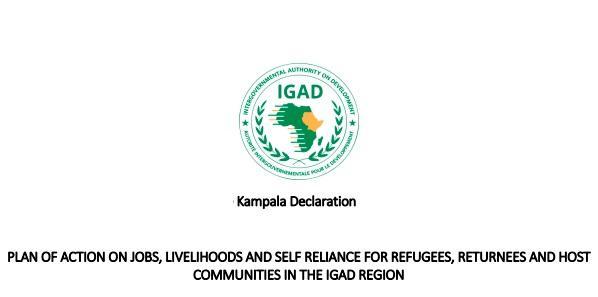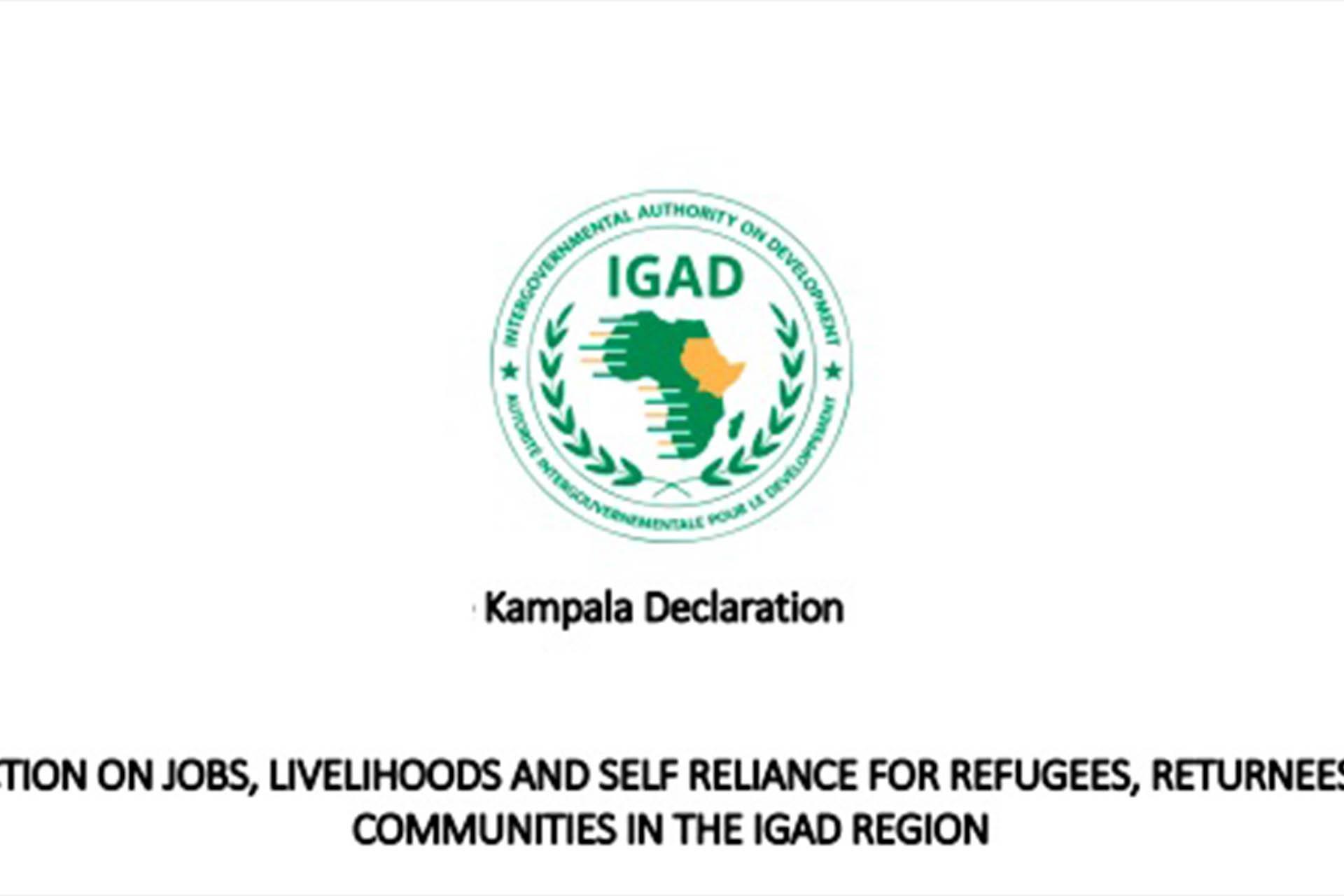
IGAD held its first Regional Technical Experts’ meeting on the Kampala Declaration on jobs, livelihood, and self-reliance for refugees, returnees, and host communities in the IGAD Region. Held virtually from 27- 28th April 2021, the meeting brought together nearly 100 experts from Member States, regional and international partners to take stock on achieved milestones, challenges, best practices and opportunities.
IGAD Member States have made considerable milestones towards the economic inclusion of refugees. The Member States have reiterated their commitment to implement the Kampala Declaration and to include refugees in their national systems.
The regional meeting panel on financing displacement highlighted using financing tactically to create an enabling environment for solutions to displacement, the importance of building coherent government-led approaches, and investing in evidence and learning to accelerate progress and drive efficiency. Engaging the private sector and the diaspora to create jobs and support national development were also emphasized.
Ethiopia’s, Agency for Refugees and Returnees Affairs (ARRA) Director General Tesfahun Gobezay Kinfie noted “displacement financing mechanisms should be designed and implemented in a manner that can create an environment conducive to ensure that refugees and host communities are not left behind”. The provision of predictable and sustainable support, blending short-term humanitarian relief with medium and long-term development processes are critical for effective displacement financing modalities.
Somalia’s Director for Durable Solutions Zahra Abdi Mohamed under the Ministry of Planning, Investment and Economic Development emphasised financing investments should be aligned with government priorities, plans and strategies for solutions and poverty reduction. Mrs. Abdi further called for IGAD in partnership with governments to map out opportunities for multi-year long term development financing models of interventions including private sector investments, fostering public private partnerships and mobilising diaspora.
IGAD member states and its partners further exchanged on the challenges, achievements, and best practices on the five priority areas of the Declaration – enabling environment, private sector and CSO engagement, sustainable return and reintegration, natural resource management as well as regional coordination, partnership and financing in panel discussion.
The outcomes of the discussion will feed into upcoming planned national consultations, IGAD ministerial meeting and Summit on the Nairobi Declaration and the regional stock-taking report for the Global Refugee Forum (GRF) 2021.
What will the Kampala Declaration change in the daily life of refugees and returnees? For example, do refugee receive a work permit and are allowed to work, move freely, have increased access to TVET and marked-oriented skills development or can open bank accounts and have access to financial services.
What is the Kampala Declaration about?
On 28th March 2019, IGAD Member States adopted the Kampala Declaration on jobs, livelihood, and self-reliance for refugees, returnees, and host communities in the IGAD Region (“the Kampala Declaration”). In the Kampala Declaration and its accompanying Action Plan, IGAD Member States committed to five priority areas:
- conducive legal environment for economic inclusion; for example, to provide access to markets and financial services or the right to work and freedom of movement;
- the importance of private sector and civil society to create sustainable livelihoods and jobs;
- sustainable return and reintegration;
- natural resource management for livelihoods and self-reliance;
- regional coordination, partnership and financing.
IGAD’s response to the refugee situation in the region
IGAD pursues a regional response to provide durable solutions for refugees and improving their livelihoods, education and health. This directly facilitates the implementation of international policies, such as the New York Declaration and the Comprehensive Refugee Response Framework (CRRF) of 2016 and the Global Compact on Refugees (GCR) of 2018.
IGADs regional approach is deeply rooted in the Nairobi Declaration (2017), which was originally formulated to address the protracted situation of Somali refugees but was since then extended to cover all refugee situations in the region. More specialised policies on thematic areas were formulated in the course, such as the inclusion of refugees in national education system (Djibouti Declaration, 2017) and in national labour markets and improving refugees’ livelihoods (Kampala Declaration, 2019). The IGAD Support Platform, which was launched during the Global Refugee Forum in 2019 in Geneva gives these policies an overall frame on the international arena.

Download Attached Documents in PDF below
